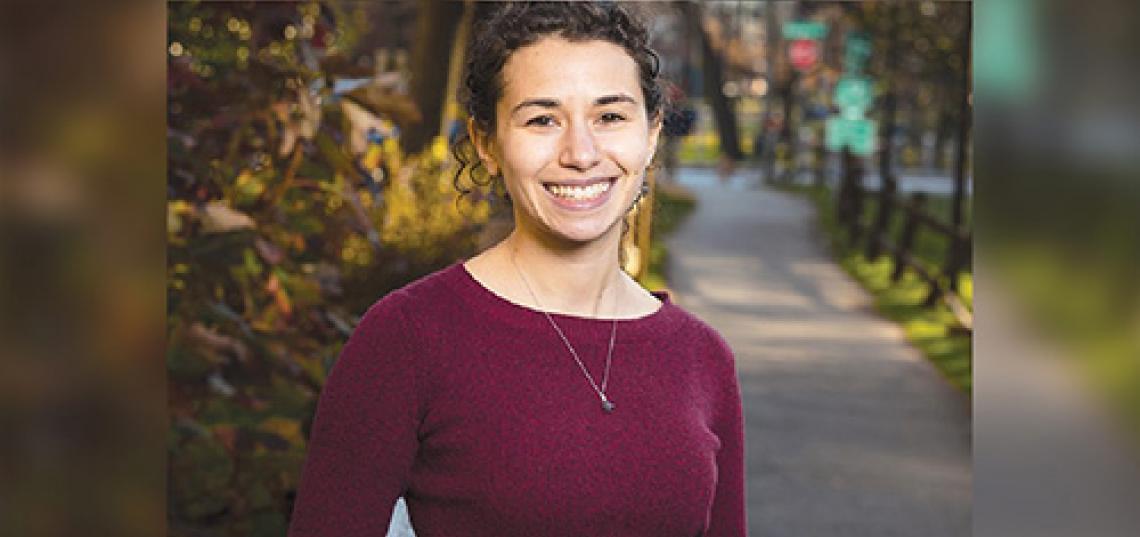
SC&I alumna Stacy Brody MI ’18 has been named a 2021 Librarian of the Year by Library Journal for her work volunteering with the Librarian Reserve Corps, a World Health Organization/Global Outbreak Alert and Response Network partner.
The LRC was created by Elaine R. Hicks, research, education, and public health librarian at Tulane University to address the WHO’s “need for timely, accurate, and searchable material about COVID-19,” according to the Library Journal.
According to Brody, the LRC volunteers “provide extra support” to the WHO Global COVID-19 Database in order to help users “find and synthesize information” related to the pandemic. Brody said the LRC is also involved in conversations with public health and medical professionals, as well as other information professionals, about “best practices for searching for information and methods for conducting reviews.”
Brody said that their work ultimately impacts the public “through decisions made based on the application of clinical guidelines and reviews.”
“What I am very excited about is how this award highlights the work of medical librarians in schools, hospitals, and other organizations,” Brody said. “A lot of our work happens behind the scenes. I hope this award recognizes the hard work and talents in our profession.”
Brody is being honored alongside her LRC teammates, Hicks and Sara Loree, medical librarian at St. Luke’s Health System in Boise, ID as 2021 Librarians of the Year. According to Library Journal, Brody and Loree were some of the first volunteers to assist Hicks and they soon assumed roles as co-leads for the project.
Brody said that the volunteers used the software programs Zotero and DistillerSR to categorize information that has been published so far on the COVID-19 pandemic, such as papers in academic journals.
“Ultimately, it was hoped that a fully categorized list could be exported on a regular basis and delivered to the researchers participating in the Global Outbreak Alert and Response Network,” she said.
However, Brody said, the volume of information they received made this process “untenable and ultimately unsustainable.” Brody said that currently, LRC volunteers have since transitioned to directly supporting the WHO Global COVID-19 database.
“What I am very excited about is how this award highlights the work of medical librarians in schools, hospitals, and other organizations,” she said. “A lot of our work happens behind the scenes. I hope this award recognizes the hard work and talents in our profession.”
Brody is currently a reference and instruction librarian at the George Washington University School of Medicine and Health Sciences in Washington, DC. There, she teaches a Practice of Medicine course to first- and second-year medical students, discussing the evidence pyramid and how to locate resources to support evidence-based practice. She also provides “orientations, workshops, and one-on-one consultations to students in the medical school, school of nursing, and school of public health.”
Brody’s background is in agriculture and plant science, graduating from the Rutgers School of Environmental and Biological Sciences in 2013. As an undergraduate, she said she spent a lot of time in the library conducting “an extensive literature review on the use of plants as antimalarials.” She decided to return to Rutgers in the MI program to pursue a career in data or information management.
Her shift towards librarianship in the health field occurred when she was taking a class with Associate Teaching Professor of Library and Information Science Joyce Valenza, learning how to use databases like PubMed. At the same time, a family member was asking her health-related reference questions and she decided to turn those reference questions into a school project, which ultimately became a LibGuide on information resources for new mothers.
“I also found opportunities throughout the MI program to identify my own learning objectives and use the course assignments to achieve those. That balance of structure and freedom, with the guidance and support of the faculty, was invaluable.”
While working on that project, she applied for, and was accepted into, the National Library of Medicine Associate Fellowship program, which provides “a broad foundation in health sciences information services, and to prepare librarians for future leadership roles in health sciences libraries and in health services research,” according to the NLM.
As an MI student, Brody worked in science libraries at Rutgers with what she calls the “amazing” librarians there. “During the course of that work, I learned more about the scholarly communications cycle - that foundational knowledge has helped me engage in conversations and projects at the National Library of Medicine, at my current position, and with LRC,” she said.
“The MI program offered a broad base on which to build. I took courses from cataloging to reference and use lessons from all in my current position and with LRC. My experiences in the program were complemented by my internships and work in the Rutgers Libraries. Real-time application allowed me to really hone in on what I needed and wanted to learn.
“I also found opportunities throughout the MI program to identify my own learning objectives and use the course assignments to achieve those. That balance of structure and freedom, with the guidance and support of the faculty, was invaluable.”
Discover more about the Master of Information program and the Library and Information Science Department on the Rutgers School of Communication and Information website.
Photo: Courtesy of Stacy Brody MI ’18
